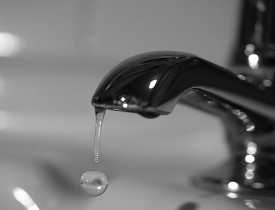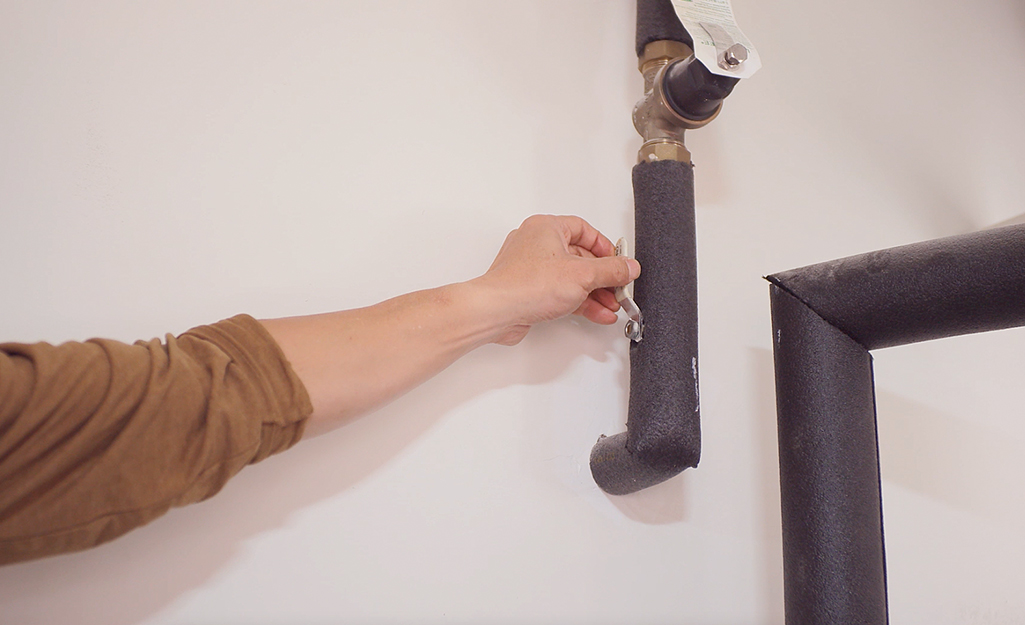Just about every person maintains their personal way of thinking about Why Is It Important To Fix Your Leaking Tap/Faucet?.

Trickling taps may appear like a small trouble, but their impact surpasses simply the nuisance of the sound. From wasting water to incurring unneeded financial expenses and wellness threats, neglecting a trickling tap can bring about numerous effects. In this post, we'll look into why it's critical to resolve this usual house issue quickly and successfully.
Wastefulness of Water
Environmental Impact
Trickling taps contribute dramatically to water wastage. According to the Epa (EPA), a solitary faucet trickling at one drip per second can throw away greater than 3,000 gallons of water annually. This not only strains water sources yet also influences ecosystems and wildlife based on them.
Financial Costs
Increased Water Bills
Past the environmental effect, leaking faucets can blow up water expenses considerably. The built up wastage gradually translates right into greater energy expenses, which can have been avoided with prompt fixings.
Potential Home Damage
Additionally, extended trickling can lead to damage to fixtures and surface areas bordering the tap. Water accumulation can create staining, corrosion, and also architectural issues if left ignored, leading to additional repair work expenses.
Health and wellness Issues
Mold and Mold Growth
The consistent visibility of moisture from a trickling tap produces an excellent setting for mold and mildew and mildew growth. These fungis not only compromise indoor air quality yet additionally position health and wellness threats, especially for people with respiratory system problems or allergies.
Waterborne Conditions
Stagnant water in leaking faucets can end up being a breeding ground for microorganisms and other pathogens, raising the danger of waterborne illness. Impurities such as Legionella germs thrive in stationary water, possibly leading to severe illnesses when ingested or inhaled.
Do it yourself vs. Expert Fixing
Benefits and drawbacks of DIY Repair Work
While some might try to deal with a dripping tap themselves, do it yourself repairs come with their own collection of obstacles. Without appropriate understanding and devices, do it yourself efforts can intensify the concern or lead to incomplete fixings, prolonging the problem.
Advantages of Hiring a Specialist Plumber
Hiring an expert plumber makes sure that the underlying source of the trickling tap is addressed efficiently. Plumbing technicians possess the knowledge and devices to identify and repair tap concerns effectively, conserving time and decreasing the risk of more damages.
Step-by-Step Guide to Repairing a Dripping Tap
Tools Needed
Before trying to take care of a leaking faucet, gather the required tools, consisting of an adjustable wrench, screwdrivers, replacement parts (such as washers or cartridges), and plumber's tape.
Usual Tap Issues and Their Solutions
Recognize the kind of tap and the details concern causing the drip. Usual problems include damaged washing machines, corroded shutoff seats, or damaged O-rings. Refer to maker directions or on the internet tutorials for detailed guidance on repairs.
Preventive Measures
Regular Upkeep Tips
To prevent leaking taps, perform regular upkeep such as cleaning up aerators, inspecting for leakages, and replacing damaged components without delay. In addition, think about installing water-saving tools or updating to more efficient components.
Relevance of Prompt Fixes
Dealing with trickling faucets as quickly as they're seen prevents more water wastefulness and possible damage, eventually saving both water and money in the long run.
Impact on Residential Property Worth
Perception of Well-Maintained Building
Keeping a property in good condition, including resolving upkeep issues like trickling taps, improves its perceived value and value amongst possible customers or renters.
Impact on Resale Value
Qualities with properly maintained plumbing fixtures, including taps, command greater resale values in the realty market. Dealing with leaking faucets can add to a favorable perception during building examinations and negotiations.
Environmental Responsibility
Specific Payment to Conservation
Taking responsibility for repairing dripping taps aligns with wider initiatives toward water conservation and environmental sustainability. Every individual's activities collectively make a significant impact on preserving precious sources.
Sustainable Living Practices
By focusing on punctual repairs and embracing water-saving routines, people add to lasting living practices that benefit both present and future generations.
Conclusion
Attending to a leaking faucet exceeds plain ease; it's an essential action towards preserving water, lowering monetary expenses, and protecting health and property. Whether via do it yourself repair work or expert assistance, doing something about it to take care of dripping taps is a small yet impactful method to advertise accountable stewardship of sources and contribute to a much healthier, much more lasting future.
How to Fix a Leaky Faucet: Step-by-Step Repair Guide
A leaky faucet may seem like a simple annoyance, but if it's not fixed promptly, that leak could cost hundreds to potentially thousands. From water damage to mold, mildew, and high water bills, even a tiny leak can be catastrophic if left unattended. Damage like this can even affect the overall value of your home, so it's important to take the right approach for leaky faucet repair. You may need the help of a plumber in some cases, but we've got a few tips you can try on how to fix a leaky faucet before calling the pros.
Four Faucet Types
When you're learning how to fix a leaky faucet, the first step is knowing what kind of faucet you're working with! There are four common types.
Cartridge Faucets
Cartridge faucets come in one- or two-handled varieties. In one-handled cartridge faucets, hot and cold water combines in a single cartridge. In the two-handled versions, hot and cold water are controlled separately and mixed in the faucet.
Ball Faucets
Ball faucets have a single lever you push up and down to adjust the pressure and rotate to change the temperature. A slotted metal ball controls the amount of water allowed into the spout.
Compression Washer Faucets
They're the oldest type of faucet, but they're still used in many homes — especially older ones. Compression faucets have two separate handles that, when turned, raise or lower the washer that seals a water valve. This valve stops water from flowing through the faucet when it is turned off.
Disc Faucets
Disc faucets rarely need to be repaired due to their maintenance-free design. The water flow is controlled by two discs — the upper one raises and lowers against a fixed lower disc, creating a watertight seal. If your disc faucet starts leaking, you may need to replace the seals or clean residue buildup from the inlets.
Fixing a Leaky Faucet
Step 1: Turn Off the Water
Whether you're learning how to fix a leaky bathtub faucet or how to fix a leaky kitchen faucet, always turn off the water supply to your working area when you're fixing a leak. The last thing you want is a flood added to your list of things to fix.
Look for the shutoff valves below your sink or around the tub and turn them clockwise to stop the water flow. If your faucet doesn't have shutoff valves, you may need to turn off the water for the whole house. Check to make sure it's off by turning the faucet on. If nothing comes out, you're ready to start the repair.
Step 2: Take Apart the Faucet
How you disassemble your faucet depends on the type of fixture you have. You can use a flathead screwdriver to remove the caps on top of the handle or handles for cartridge and compression faucets. Inside, you should see handle screws. Unscrew these with a screwdriver to remove the handle.
Disc- and ball-style faucets will typically have an inlet screw near the handle, and removing that will reveal the interior of the faucet.
Detach the Valve Stem
For cartridge- and compression-style faucets, you'll see the inner valve stem or cartridge once you remove the faucet handles. If you have a compression faucet, unscrew the brass valve stem. If you have a cartridge faucet, pull out the cartridge. If your cartridge has been in place for a while, it may require some tools or extra force to remove it due to mineral deposits.
Examine and Replace Parts
Once you've removed the parts, check them out to confirm what needs to be replaced. You may see corroded rubber washers, O-rings, stems, or cartridges. On a ball-style faucet, check the seats and springs for damage.
If you need to repair a leaky disc faucet, check the inlet and seals on the lower disc.
Once you determine what parts must be replaced, visit your local hardware store. Bring the damaged parts with you to ensure you can purchase the correct components to replace them.
Clean Valves and Faucet Cavity
If you've removed a stem or cartridge, you may notice mineral buildup in the faucet's threads. Use white vinegar to clean the valve seat by soaking it for a few minutes, then scrub it away with a soft toothbrush and rinse with warm water. You can also clean the interior of the faucet in the same way.
Reassemble the Faucet
Once your faucet is cleaned and the required parts have been replaced, it's time to reassemble it. Put the pieces back together and slowly turn the water supply back on. Doing this slowly is crucial because too much initial water pressure can damage the new hardware you've just installed.
https://homewarranty.firstam.com/blog/how-to-fix-leaky-faucet

We are very interested in Why Is It Important To Fix Your Leaking Tap/Faucet? and I'm hoping you enjoyed reading our entry. Loved our entry? Please quickly share it. Help other people find it. We truly appreciate reading our article about Why Is It Important To Fix Your Leaking Tap/Faucet?.